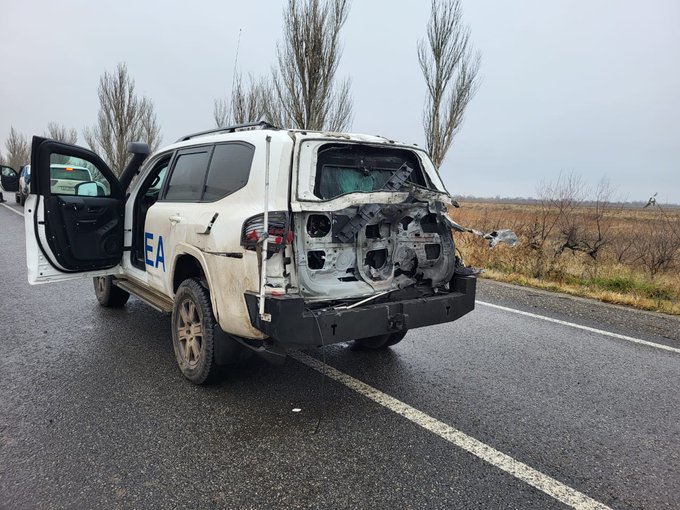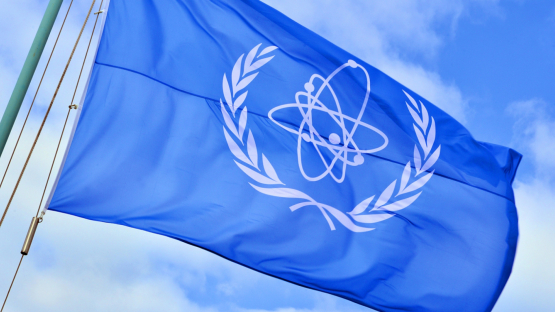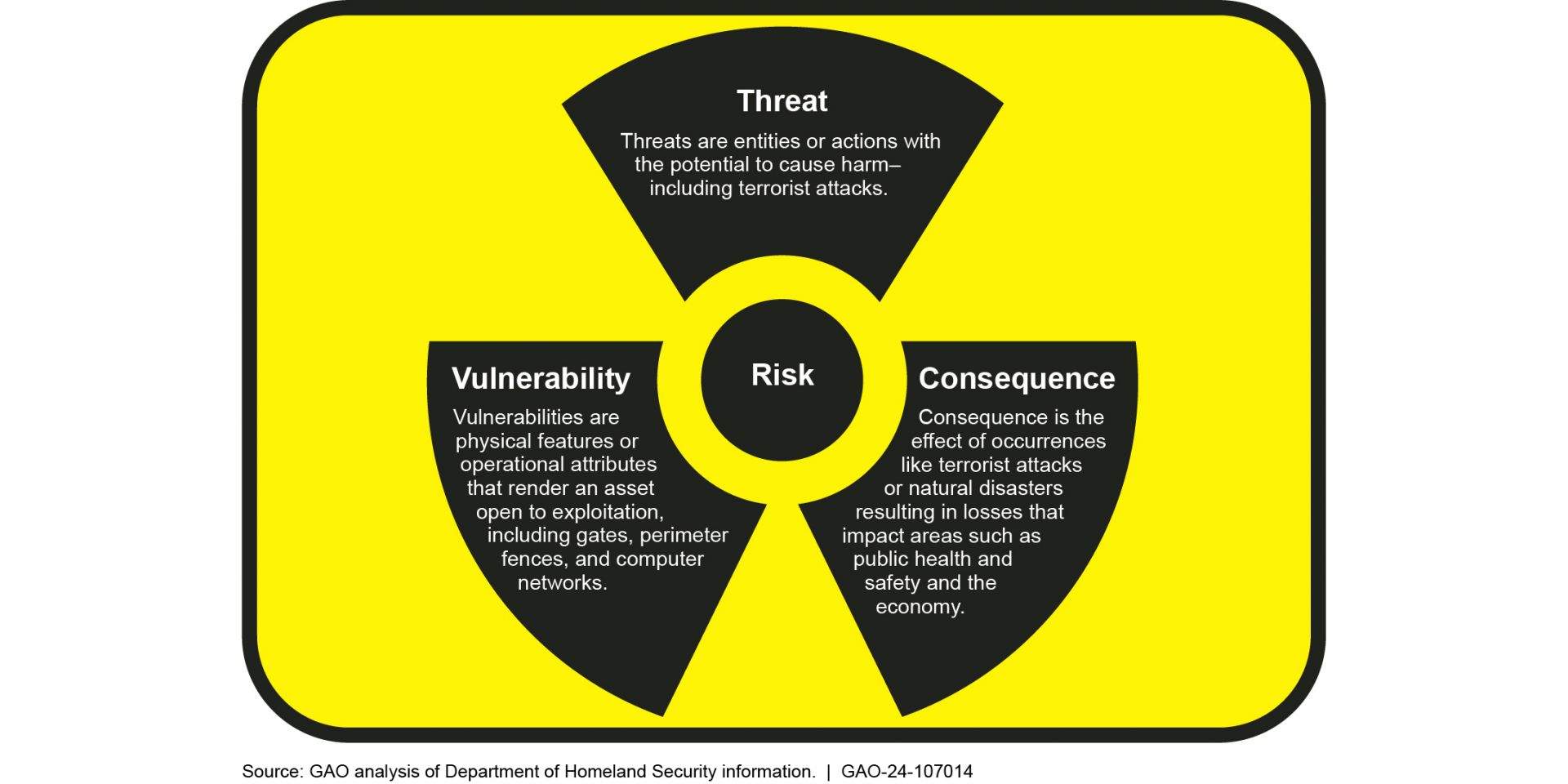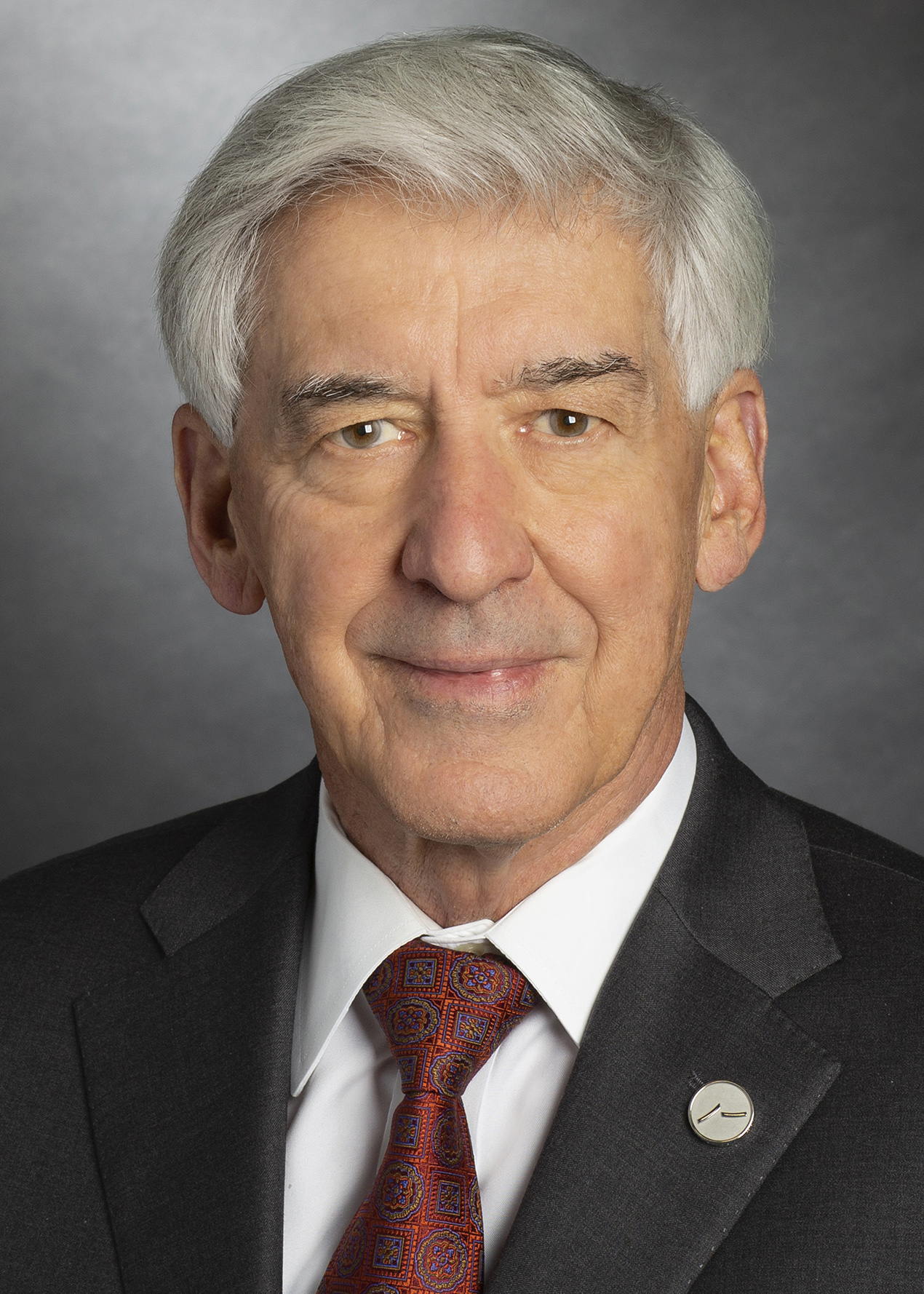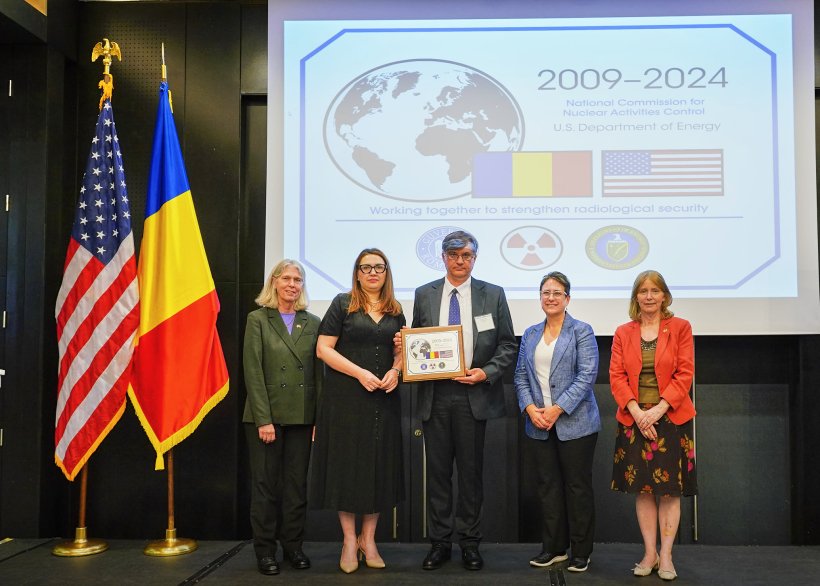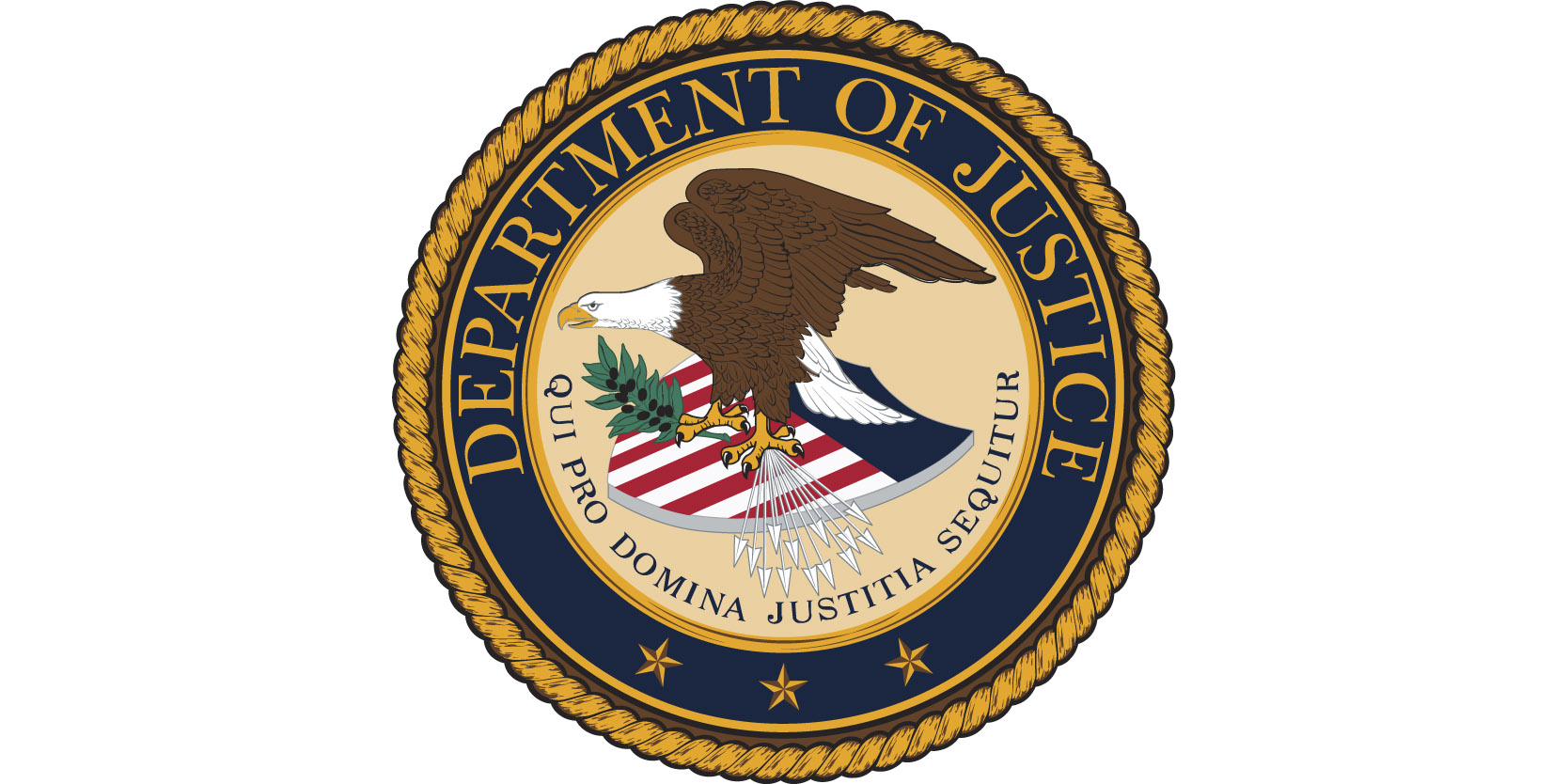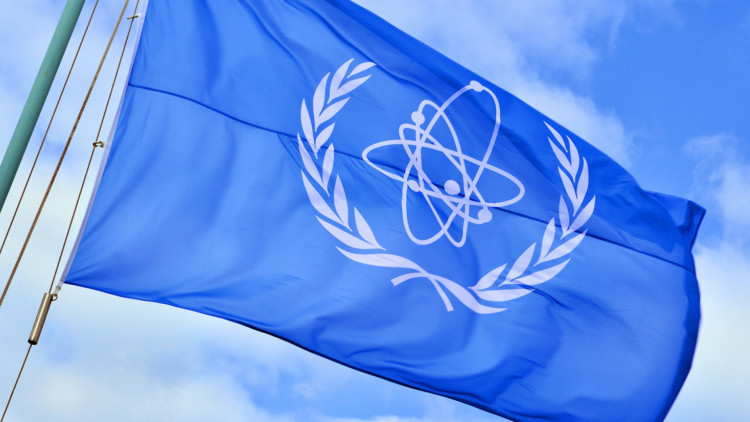IAEA director general Rafael Mariano Grossi delivered the keynote address at the Nobel Peace Prize Forum 2024 in Oslo, Norway. (Photo: D. Candano/IAEA)
Pointing to the consequences of ignoring the perils of nuclear weapons, Rafael Mariano Grossi at last week’s Nobel Peace Prize forum called for diplomacy and dialogue to reduce nuclear tensions.
Read Grossi’s full speech and watch his keynote address here.
The IAEA vehicle struck by a drone within the Zaporizhzhia region of Ukraine. (Image: X/@ZelenskyyUa)
A drone targeted and damaged an official vehicle of the International Atomic Energy Agency on December 10 as it traveled toward the front line in eastern Ukraine during a rotation of IAEA teams at Ukraine’s Zaporizhzhia nuclear power plant (ZNPP). In a video message, IAEA director general Rafael Mariano Grossi condemned the strike as an “unacceptable” attack on IAEA staff working to prevent a nuclear accident during a military conflict.
The three elements of radioactive material risk (Image: U.S. GAO)
A new report from the U.S. Government Accountability Office finds that the Nuclear Regulatory Commission has not taken the steps needed to address the potential economic and societal radiological risks that could arise from a “dirty bomb.”
From left, NNSA administrator Jill Hruby; state secretary Ana Tinca of the Romanian Ministry of Foreign Affairs; CNCAN president Cantemir Ciurea-Ercau; ORS director Kristin Hirsch; and U.S. ambassador Kathleen Kavalec.(Photo: NNSA)
The U.S. Department of Energy’s National Nuclear Security Administration and Romania’s National Commission for Nuclear Activities Control (CNCAN) recently celebrated 15 years of collaboration in advancing radiological security.
Aecon-Wachs workers performed the D&R of equipment and commodities from the plutonium processing facility at SRS. ( Photo: SRS)
A major milestone has been reached in the construction of a plutonium pit production facility at the Savannah River Site, located near Aiken, S.C.
After 18 months of work involving local trade unions, the dismantlement and removal (D&R) of commodities and equipment throughout the Savannah River Plutonium Processing Facility (SRPPF), previously installed by the Mixed Oxide (MOX) project, was completed in June 2024, the Department of Energy reported on July 24.
Ukraine's Zaporizhzhia nuclear power plant, prewar. (Photo: Energoatom)
An external radiation monitoring station was taken out by shelling and fire near the Zaporizhzhia nuclear plant in Ukraine the last week of June.
This brings the total to four of the plant’s 14 radiation monitoring sites that are out of commission, further reducing the effectiveness of its off-site capability to detect and measure any radioactive release during an emergency, said IAEA director general Rafael Mariano Grossi.
SRS firefighters responded to a staged scene outside of K Area’s Criticality Control Overpack pad. The firefighters followed an Incident Action Plan to maximize the safety of responders and role-playing victims for effective extraction. (Photo: DOE/SRNS)
Earlier this month, nearly 250 personnel at the Department of Energy’s Savannah River Site in South Carolina took part in an annual exercise to test preparedness for a radiological release and contamination emergency.
Rafael Mariano Grossi addresses the Nuclear Pools' Forum in Zurich. (Photo: D. Candano Laris/IAEA)
International Atomic Energy Agency director general Rafael Mariano Grossi was in Switzerland last week to talk with insurance executives at the Nuclear Pools’ Forum about the potential of nuclear power.



